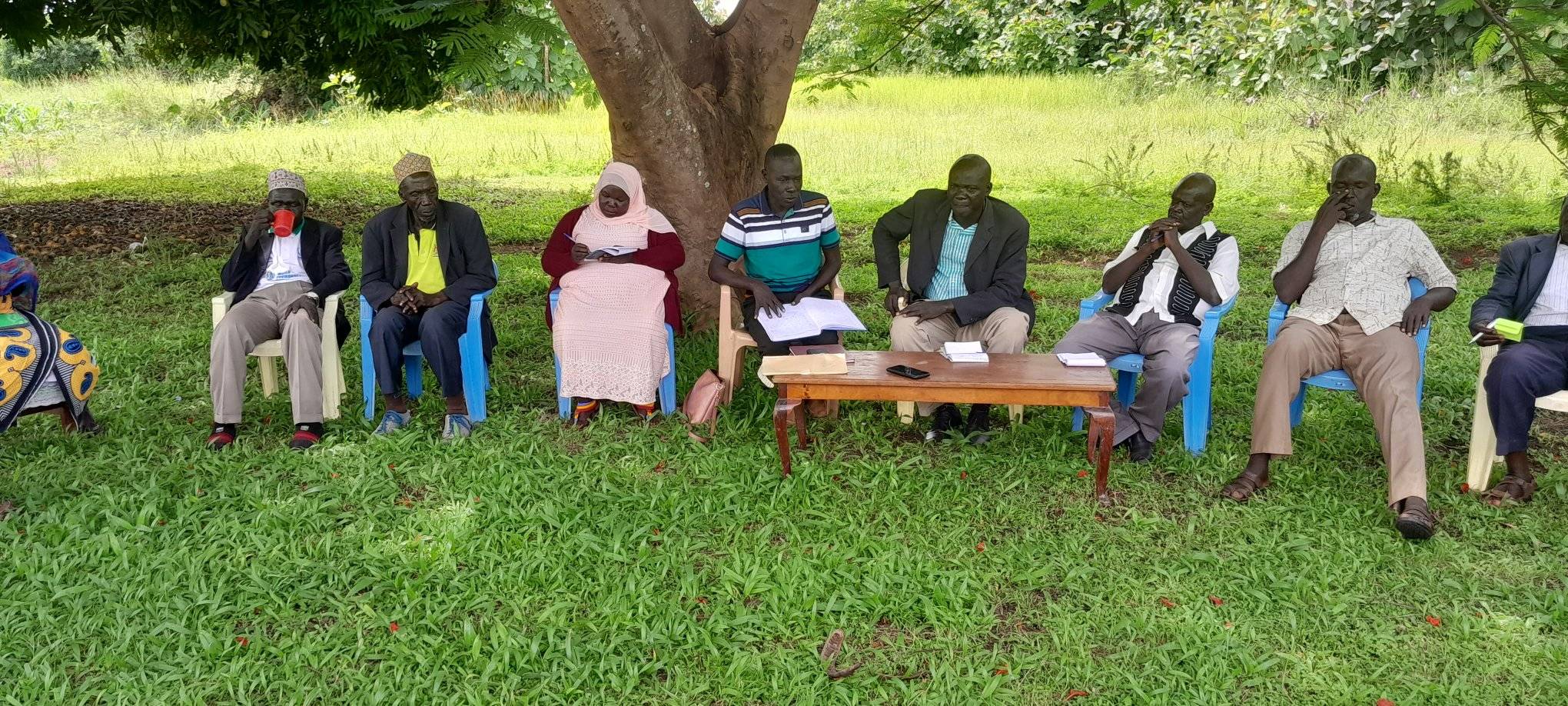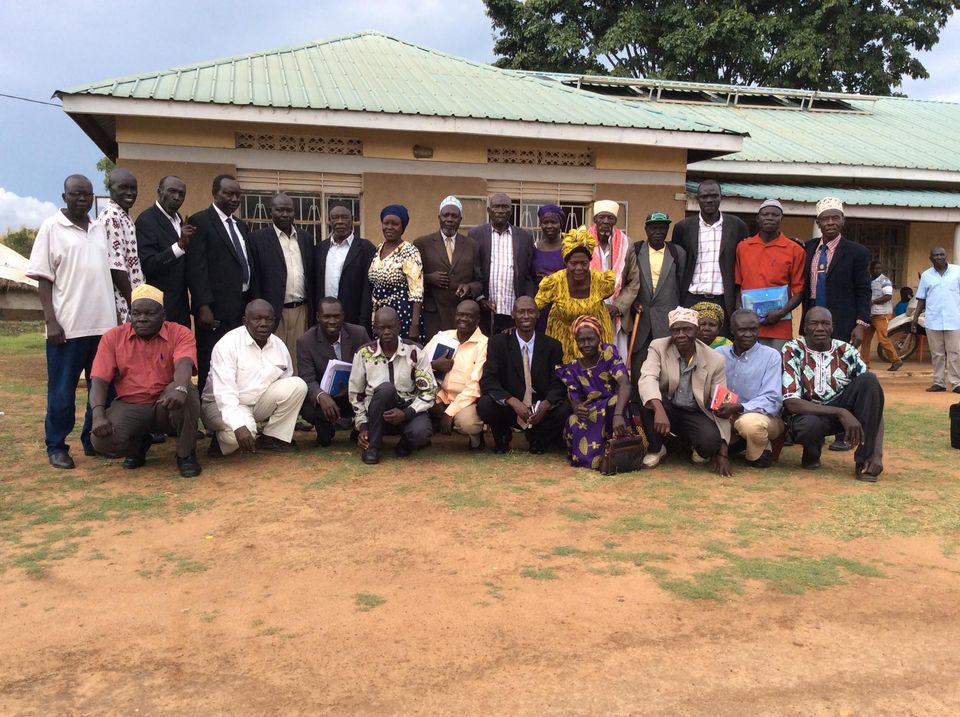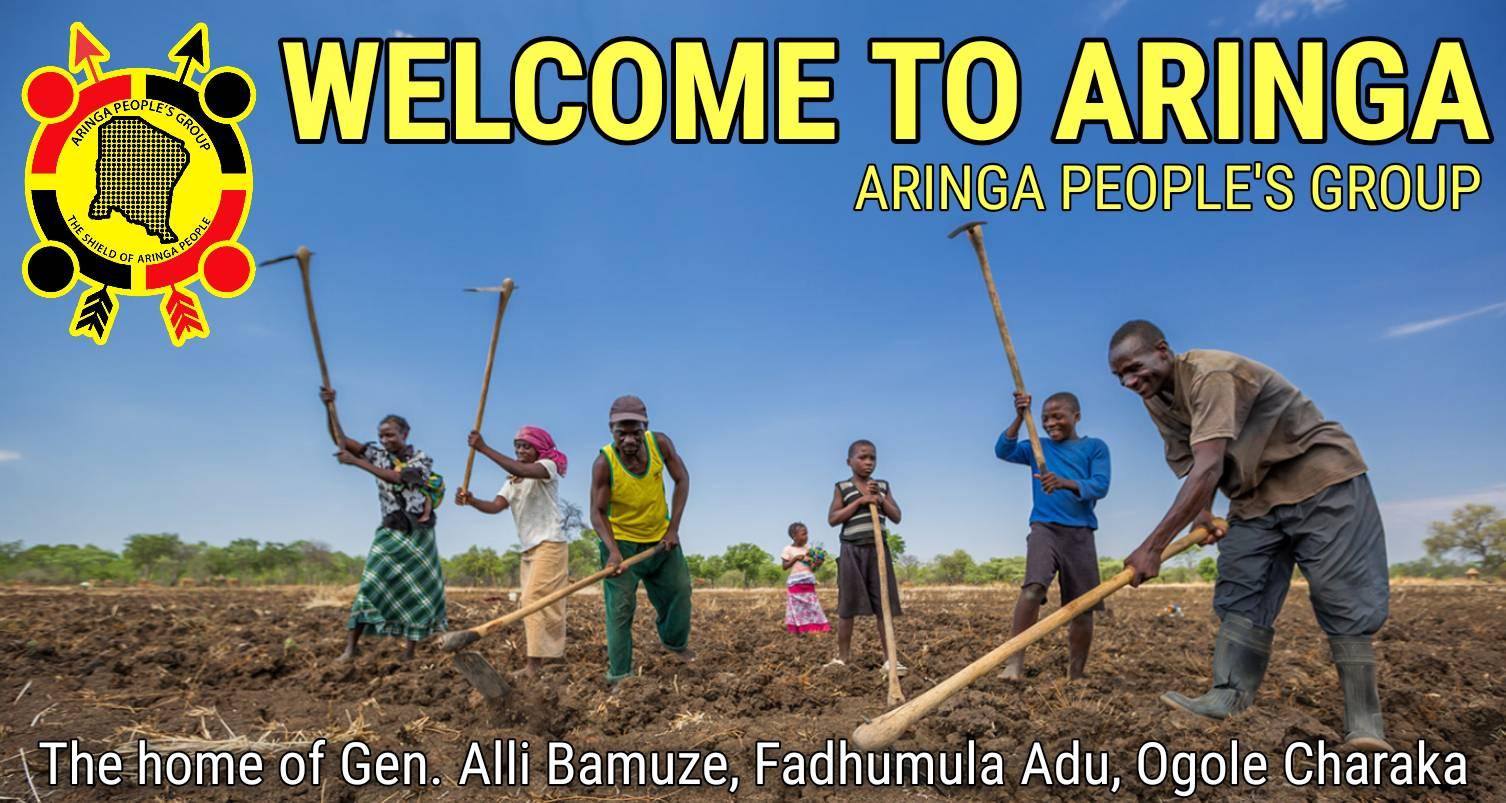Chaos In Aringa Kingdom: Clash of Ambala and Aringa Councils turns
In a stunning turn of events, the Aringa community in Kasiam Obote is facing a crisis as the local council chairperson of Nigo cell, Majanga ward, Kuru town council, halted an important Aringa Ambala traditional kingdom meeting.
The meeting, which aimed to install a new king, has caused tensions to rise, revealing a deep divide between the Ambala and Aringa councils. With only a few representatives from Ambala and Alia Pi clans attending, the issue of whether Ambala kingdom should be nullified and merged into Aringa kingdom is further fueling the controversy.
On Saturday, July 8th, 2023, the long-awaited Aringa Ambala traditional kingdom meeting faced a major setback when the local council chairperson, Kasium Obote, intervened and called it off. Citing concerns over the low turnout, Kasium argued that a significant number of attendees was required to ensure the legitimacy of the meeting and avoid potential chaos in the community.
The heart of the dispute lies in the conflicting interests of the Ambala and Aringa councils. Prince Muhamad Drigo, the speaker of the Ambala kingdom Aringa council, expressed his strong stance that the Ambala kingdom should be nullified, advocating for a unified Aringa kingdom instead. This position has sparked a heated debate within the Aringa community, with proponents and opponents of the merger airing their opinions.
Adding fuel to the fire is Opi Nasur Acikule, a prominent elder in the community, who has expressed his desire to become the king of Aringa. He aims to garner support from the larger Aringa Corium, the governing body of the community. With aspirations of leading the community, Nasur's ambitions add a layer of complexity to the already contentious situation.
The resident district commissioner of Arua, Ham Hamza Ezama, who attended the meeting as a representative of the Aringa youth, pointed a finger at the elders for failing to uphold their leadership responsibilities. He argued that this negligence had led to the suffering of the youth in the Aringa community. The dissatisfaction of the younger generation is evident, and their voices have become a significant factor in the ongoing turmoil.
The Reigning Ambala King:
As the drama unfolds, it's essential to remember that the current Ambala king is Ali Fadimullah Aduu. His position and influence during these challenging times are crucial, as he represents the aspirations of Ambala council supporters and plays a vital role in determining the future of the kingdom.
The Aringa community finds itself at a crossroads, torn between preserving the longstanding Ambala kingdom or merging it into a unified Aringa kingdom. As the tension between the two councils persists, the fate of the new king's installation hangs in the balance.
The decisions made in the coming days will undoubtedly shape the future of the Aringa people, and it remains to be seen whether unity and harmony will be restored or if further division and turmoil lie ahead. The eyes of the entire community are on the leaders as they navigate these challenging times and seek a resolution that best serves the interests of the Aringa people as a whole.

Aringa Kingdom council Sitting: 12/06/2023
The 2019 Recognition Of Aringa Kingdom
In a special council sitting of Yumbe District Council as of May 28, 2019, presided over by the Speaker, Hon. Charity Farida ARINGA Kingdom, the resolution was ratified unanimously by all the Councilors. In a motion moved by Honorable Babuga Mustapha (Workers) and seconded by Hon. Aaliyah Kadara (Women) of Apo Sub County, this landmark decision in the History of the 600-Years-old institution was first headed by Ada, Gulube Druku, up to Katria, Charaka, Hussein Noah Charaka, and the present King, His Royal Highness Adnan Doka Charaka II.
The council ruling therefore allowed the District Council to officially notify the Minister of Gender, Labour, and Social Development so as to gazette the Institution in Parliament before granting it a certificate of recognition. Thereafter, the process of coronation begins at the palace in Miri Village, Renda Parish, Kuru Sub County, Yumbe District.
Present during the ratification process were the LCV Chairman by then, Hon. Taban Yassin, all the Sub County elder chairpersons from Yumbe District, the task force members, including the chairman, Mr. Deli Ahmad, the coordinator, Mr. Adaku Ali Bamuze, the regent, Mr. Mustapha Chogo, Lemeriga Fadhil, the Speaker, Mr. Tipele Adam, the Secretary for Information, Mr. Sabuni, the Head of Media and Publicity, the Chief Administrative Officer Yumbe District, Mr. Ojok Abrahan, Mr. Kawawa Sabit, and a host of other important dignitaries.

Group Photo After The May 28th Ratification Of Aringa Kingdom
Key to note about the Aringa Kingdom in Uganda
Dating back centuries, the Aringa Kingdom has been a cornerstone of the West Nile region. Its roots can be traced to the ancestral lineage of the Aringa people, who have nurtured their customs, language, and unique traditions through the ages. The kingdom's influence extends beyond its borders, permeating the lives of those who call West Nile their home.
The Aringa Kingdom is a traditional kingdom in the West Nile region of Uganda. It is located in Yumbe District, which is in the northwestern corner of the country. The Aringa people are the indigenous inhabitants of the region, and they have a long and rich history.
The Aringa Kingdom was founded in the 17th century by a man named Opio Aringa. He was a great warrior and leader, and he united the Aringa people under his rule. The kingdom reached its peak in the 18th century, when it controlled a large territory and had a strong military. In the 19th century, the Aringa Kingdom began to decline. This was due to a number of factors, including internal conflict and the arrival of European colonists. The kingdom was finally abolished in 1905 by the British colonial government.
However, the Aringa people have never forgotten their kingdom. They continue to celebrate their culture and traditions, and they have a strong sense of identity. The Aringa Kingdom is a symbol of their heritage and pride.
The Aringa people are primarily Muslim, and they speak the Aringa language. They are known for their traditional music and dance, and they have a rich oral history. The Aringa people are also skilled farmers and traders.
The Aringa Kingdom is a vibrant and dynamic community. The Aringa people are proud of their heritage, and they are working to preserve their culture and traditions. The kingdom is a source of inspiration for the Aringa people, and it gives them a sense of identity and belonging.

Curtesy Photo
Here are some additional facts about the Aringa Kingdom:
- The Aringa people are thought to have migrated to the West Nile region from Sudan in the 16th century.
- The Aringa Kingdom was founded in the 18th century by King Olimi
- The Aringa Kingdom reached its peak in the 19th century, when it controlled a large territory in the West Nile region.
- The Aringa Kingdom was weakened in the 20th century by British colonialism and the Sudanese Civil War.
- The Aringa Kingdom was restored in 1995, and it is now a semi-autonomous region within Uganda.
Key to Know about Yumbe:
Yumbe is the main town in the Aringa Kingdom, and it is home to the Aringa Cultural Centre. The cultural center is a great place to learn about the Aringa people and their culture. You can see traditional Aringa houses, learn about Aringa music and dance, and see examples of Aringa handicrafts.
Previous History of Conflict in Aringa Kingdom
The Aringa Kingdom of West Nile Uganda has a long and complex fighting history. The Aringa people have been involved in conflict with a number of neighboring groups, including the Lugbara, Madi, and Kakwa. They have also fought against the British colonial government and the Ugandan government.
One of the most significant conflicts in Aringa history was the Aringa-Lugbara War of 1875–1876. This war was fought over control of the West Nile region, and it resulted in the defeat of the Aringa by the Lugbara. The Aringa were forced to pay tribute to the Lugbara, and they were not able to regain their independence until the British colonial government intervened in 1911.
The Aringa also fought against the British colonial government during the Maji Maji Rebellion of 1905-1907. This rebellion was a widespread uprising against colonial rule in East Africa, and the Aringa were one of the groups that participated. The rebellion was eventually suppressed by the British, but it resulted in the deaths of thousands of Aringa people.
The Aringa have also fought against the Ugandan government on a number of occasions. In 1971, the Aringa supported Idi Amin's coup d'état, and they played a significant role in his early regime. However, Amin turned against the Aringa in the late 1970s, and he ordered the killing of many Aringa people. The Aringa were also targeted by the Ugandan government during the Ugandan Bush War of 1981–1986.
The Aringa have a long and proud history of fighting for their independence and their rights. They have faced many challenges over the years, but they have always emerged stronger. The Aringa are resilient people, and they will continue to fight for their future.
In addition to the conflicts mentioned above, the Aringa have also been involved in a number of smaller-scale conflicts with neighboring groups. These conflicts have been over land, resources, and political power.
The Aringa have also been the victims of slave raids, and they have been forced to pay tribute to more powerful groups.The Aringa fight history is a complex and sometimes bloody one. However, the Aringa have also shown great resilience and determination in the face of adversity. They have a long and proud history of fighting for their independence and their rights, and they will continue to fight for their future.
In Conclusion, The situation in Aringa is a delicate one, with a clash of kingdoms threatening the unity of the community. The halted meeting intended to install a new king only scratches the surface of deeper issues at play. It remains to be seen whether a resolution can be reached that will honor the region's rich cultural heritage while fostering unity among its people. As the Aringa community navigates these turbulent waters, it is crucial for all stakeholders to engage in open dialogue and prioritize the collective well-being of the community above all else. Only through genuine cooperation can the community hope to emerge stronger from this challenging period in its history.
BY: ANWANGKANI FRANCO - Dailywestnile.info